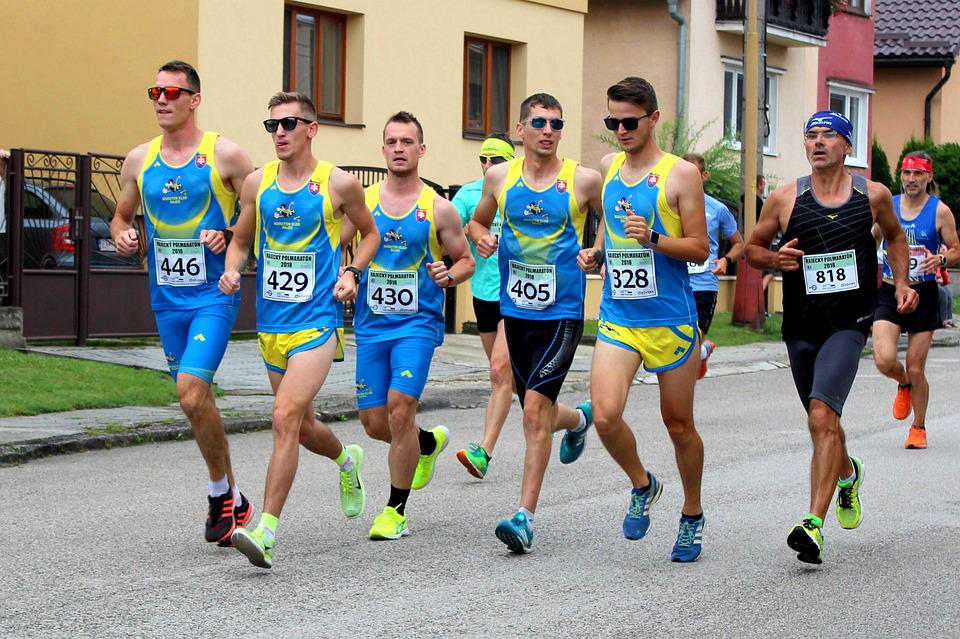Running a marathon is not just a test of physical endurance; it’s a true testament to one’s mental grit and nutritional strategy. Whether you’re a first-time marathoner or a seasoned runner aiming for a personal best, understanding how to fuel your body effectively can significantly impact your performance and overall experience on race day.
The Importance of Nutrition in Marathon Training
Nutrition plays a crucial role in both the training phase and the actual marathon event. The right nutrients can help:
- Enhance Performance: Proper nutrition ensures your body has the energy it needs for long-distance running.
- Aid Recovery: After rigorous training or a marathon, optimal nutrient intake helps in muscle recovery and reduces fatigue.
- Prevent Injury: Adequate nutrition supports bone health, reduces inflammation, and lowers the risk of injuries typically associated with long-distance running.
Essential Nutrients for Runners
Carbohydrates: Your Primary Fuel Source
Carbohydrates are the cornerstone of any marathon training diet. During long runs, your body relies on glycogen, the stored form of carbohydrates, to fuel your muscles.
- Types to Include: Focus on complex carbohydrates like whole grains, fruits, and vegetables. Simple carbohydrates, such as those found in energy gels or sports drinks, can provide quick bursts of energy during training and on race day.
- Daily Intake: Aim for 6-10 grams of carbohydrates per kilogram of body weight, depending on your training intensity and goals.
Proteins: Repair and Rebuild
Protein is essential for muscle repair and recovery. It helps rebuild the micro-tears that occur in muscle fibers during intense running sessions.
- Sources: Include lean meats, fish, dairy, legumes, and nuts in your meals.
- Post-Run: Consuming a protein-rich snack within 30 minutes after a workout—ideally a 3:1 ratio of carbohydrates to protein—can enhance recovery.
Fats: The Long-Lasting Energy Source
While many runners shy away from fats, they are crucial for sustained energy during long runs, especially when glycogen stores begin to deplete.
- Healthy Fats: Include sources like avocados, olive oil, nuts, and fatty fish in your diet.
- Recommended Intake: Around 20-35% of your daily caloric intake should come from healthy fats.
Hydration: A Key Player
Staying hydrated is equally important as your food intake. Dehydration can significantly impair performance and increase the risk of injuries.
- Daily Goals: Aim for at least 2-3 liters of water daily, adjusting based on your training intensity and environment.
- During Runs: Practice your hydration strategy during training to find out what works best for your body, whether it’s water, electrolyte drinks, or gels.
Timing Your Nutrition
Pre-Run Nutrition
48 Hours Before: Focus on carbohydrate loading. Increase your intake of carbs to maximize glycogen stores, while maintaining a moderate amount of protein and low fiber to avoid gastrointestinal distress.
1-2 Hours Before: Have a light meal or snack that is rich in carbohydrates but low in fats and proteins, such as a banana or an energy bar. This will give your body the quick energy it needs without risking stomach discomfort.
During the Run
For marathons lasting longer than 90 minutes, replenishing carbohydrates and electrolytes during the race is vital.
- Gels and Energy Chews: Choose easily digestible energy sources every 30-45 minutes.
- Hydration: Drink water and electrolyte drinks as needed—around every 15-20 minutes.
Post-Run Nutrition
After crossing the finish line, make it a priority to help your body recover. You should refuel within 30 minutes:
- Carbohydrates and Proteins: A smoothie with fruits and a protein powder, or a turkey sandwich, can provide the necessary nutrients.
- Hydration: Replace lost fluids with water and electrolyte drinks.
Sample Meal Plan for Marathon Training
Breakfast
- Oatmeal topped with banana and a sprinkle of nuts.
- Greek yogurt with fruit and honey.
Lunch
- Quinoa salad with chickpeas, spinach, and olive oil.
- A turkey and avocado wrap on whole grain bread.
Snack
- Energy bars or rice cakes with nut butter.
- Smoothie with spinach, banana, and protein powder.
Dinner
- Grilled salmon, sweet potatoes, and roasted vegetables.
- Stir-fried tofu with brown rice and mixed vegetables.
Hydration
- Include water throughout the day, and consider adding electrolyte beverages, especially on long run days.
Conclusion
Fueling your body for marathon success is an art that combines science, experience, and attentiveness to your individual needs. By understanding the importance of carbohydrates, proteins, fats, and hydration, you can improve your performance, facilitate recovery, and most importantly, enjoy the journey of preparing for your marathon. As you lace up your running shoes and hit the pavement, remember that your nutrition is just as critical as your miles logged—fuel right for success!



